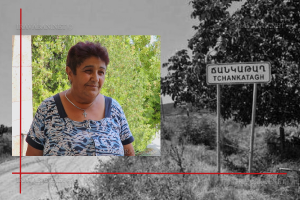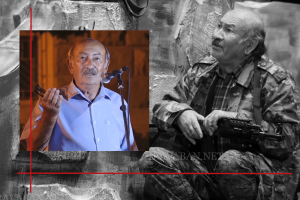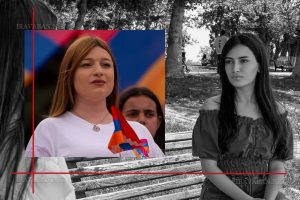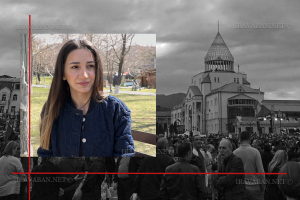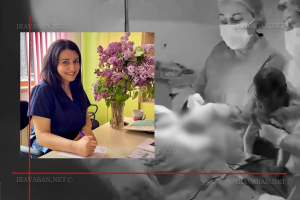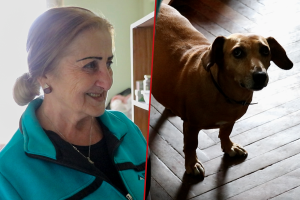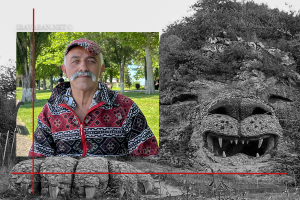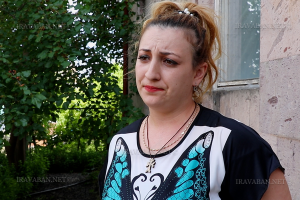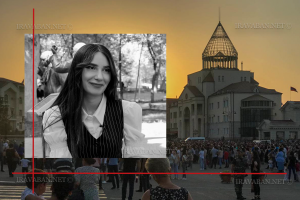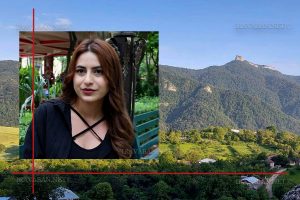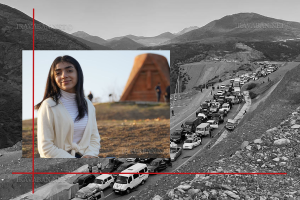Karen Sargsyan, who was forcibly displaced from the occupied Republic of Artsakh, told in the framework of “Artsakh: Armenian Genocide 2023. Stories of Survivors” documentary project of Iravaban.net, that he was displaced from Gandzasar.
Speaking about the nine months of the blockade, he mentioned that they had a very bad time.
“My sister’s child’s arm was broken, we asked and somehow got 10 liters of gasoline to take the child to the hospital. Everything was very bad. From the point of view of availability of flour, bread, oil, there was only drinkable water. There was neither light nor gas. There was no food at all. All the children and adults were deprived of vitamins,” he said.
Our interlocutor emphasizes that they fought so hard not to leave Artsakh.
“We stopped again, we fought, and we said no, we have to live in our land. I myself took part in all that; I was under siege for 5-6 days. I left on 25 September. I didn’t know where my family was, I didn’t know about anyone. The village was bombarded, children were killed. I came to Stepanakert, the connection was a little better, I called several times, and I found my family. I went on foot and reached them. We were told that we should leave Artsakh,” he said.
Karen says that he was in position when the enemy started bombing Artsakh on 19 September.
“It started immediately and on a large scale. It started all over the area. Within 3-4 seconds, all that started. They hit us with a military plane; they thought only about annihilating us. This was not a war, this was genocide. You cannot give any other interpretation to this; this was a genocide that we saw with our own eyes. We are a nation that somehow survived the genocide. My friends were slaughtered, I went to their funeral. Child, adult, woman, it doesn’t matter, everyone was stabbed. They cut off people’s ears and heads. We have seen a lot of terrible things,” our interlocutor told.
When asked how they were told to lay down their weapons and leave their positions, Karen says that the Russian peacekeepers told.
“The Russians came and took us out, the Russians together with the Azerbaijanis. It was dark; we did not know what their rank was. They came and said, ‘you should surrender, everyone has surrendered, you are the last men, and we warn you not to go to provocations, Artsakh is disarmed, you also surrender and hand over your weapons and ammunition, they will take to Armenia from here. Well, what we should do, the president had already agreed to the disarmament, and we are in the blockade. We also thought that if we do not hand over the weapons, our children will be killed. One of them said, “You will not reach if you do not hand over your weapons.” They had already set up several positions towards the village. They said you cannot go down, they will hit you. They disarmed us personally, the Russians and the Turks. They told us, if you hand over the weapons to the Russians, the Russians will hand them over to Armenia,” our interlocutor noted.
Karen says that while crossing the Hakari bridge, they were stopped and photographed. “We have come with many difficulties, we have arrived. They took us out of the car, asked how many women there are, how many children.”
He told the conversation between them and the Azerbaijanis, when the enemy told them that they do not need the people of Artsakh, they need Artsakh and the members of the current and former government of Artsakh.
“They said: We need Karabakh, we don’t need you. It is impossible to live with them, even for an hour. I will never accept the terms of integration proposed by them. Integration is not acceptable to us. It will be acceptable for us to return to our country with our flag, our flag of Armenia, the flag of Artsakh, live in our land,” he said.
Karen Sargsyan has taken a handful of land with him.
“Artsakh: Armenian Genocide 2023. Stories of Survivors” documentary project of Iravaban.net is aimed at collecting the memories and testimonies of citizens forcibly displaced from Artsakh occupied by Azerbaijan, about the genocide of the Armenians of Artsakh committed by Azerbaijan, atrocities, the days of war, the path of deportation, etc.
Iravaban.net seeks help from citizens who will voluntarily agree to translate materials into different languages: Russian, English, French, Arabic, Persian, Turkish, Georgian, Chinese…
You can write to our e-mail address at: [email protected]
To donate for realization of the project: https://iravaban.net/en/become-a-supporter
Details in the video.
Armenian Lawyers’ Association is the author of the idea “Artsakh: Armenian Genocide 2023. Stories of Survivors” documentary project of Iravaban.net and is the owner of copyright of the materials created within the framework of the project. In case of using the materials produced within the framework of the project, it is necessary to obtain the written permission of the Armenian Lawyers’ Association.
Hasmik Sargsyan

